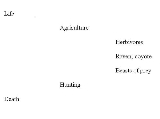
Claude Lévi-Strauss (klod levi stʁos; (28 November 1908 – 30 October 2009) was a French anthropologist and ethnologist, and has been called, along with James George Frazer, the "father of modern anthropology".
He argued that the "savage" mind had the same structures as the "civilized" mind and that human
characteristics are the same everywhere.
While I complain of being able to glimpse no more than the shadow of the past, I may be insensitive to reality as it is taking shape at this very moment, since I have not reached the stage of development at which I would be capable of perceiving it. A few hundred years hence, in this same place, another traveller, as despairing as myself, will mourn the disappearance of what I might have seen, but failed to see. ![]()
Teaching and research are not to be confused with training for a profession. Their greatness and their misfortune is that they are a refuge or a mission.![]()
Not only does a journey transport us over enormous distances, it also causes us to move a few degrees up or down in the social scale. It displaces us physically and also — for better or for worse — takes us out of our class context, so that the colour and flavour of certain places cannot be dissociated from the always unexpected social level on which we find ourselves in experiencing them.![]()
In the case of European towns, the passing of centuries provides an enhancement; in the case of American towns, the passing of years brings degeneration. It is not simply that they have been newly built; they were built so as to be renewable as quickly as they were put up, that is, badly. ![]()
Freedom is neither a legal invention nor a philosophical conquest, the cherished possession of civilizations more valid than others because they alone have been able to create or preserve it. It is the outcome of an objective relationship between the individual and the space he occupies, between the consumer and the resources at his disposal. ![]()
One must be very naïve or dishonest to imagine that men choose their beliefs independently of their situation. ![]()
The image a society evolves of the relationship between the living and the dead is, in the final analysis, an attempt, on the level of religious thought, to conceal, embellish or justify the actual relationships which prevail among the living.![]()

